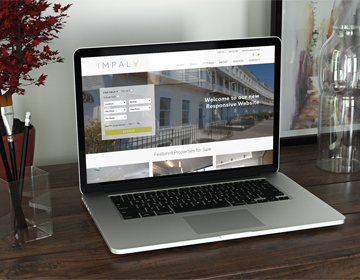Don’t lose SEO ranking over Google’s ‘mobile first’ index changes
02 January 2018 8481 Views

In 2018, Google will introduce changes to the way it ranks websites, meaning sites will be ranked on the quality of their mobile friendly content rather than the content on their desktop site. Here’s how you can get prepared.
Ranking on the first page of Google is important for your business in order to get the most clicks through to your site. However, it can be hard to anticipate what Google will determine to be a good enough site to top the search results.
Why prioritise mobile friendly sites?
More and more emphasis over the past few years has been placed on mobile experiences. Since 2012, smartphone adoption has increased from 30% to 70%*. When seeking information, most people reach for their smartphones first. Google is now taking this approach when ranking websites on its search pages.
What do you need to know?
Instead of Google determining search result page position based on the content of the desktop version your site, it will now look at how optimised your site is for other devices. This will take into account factors such as whether your site loads quickly on a mobile, and whether the same content is used for the desktop and mobile versions of a site, instead of content specifically optimised for smaller screens. If you only have a desktop site, this doesn’t mean that you won’t be ranked, your site will just rank lower than it would if it was mobile friendly.
Losing ranking position on search results pages usually happens slowly and can be down to stagnant website content or competitors taking a proactive approach to updating their site. However, with the proposed ‘mobile first’ index changes, websites that are not mobile friendly will automatically be penalised.
By imposing these new rules, Google is trying to achieve two things; the first is making responsive websites that adjust to every device size the norm, and the second is encouraging quality content that looks good on both desktop and mobile devices.
How to get ahead on Google
First, establish whether your website is responsive or not. If your property website is responsive it will display the same content on both desktop computers and mobile devices, but the content will automatically adapt to a smaller screen size for a better user experience.
Even if you have a mobile friendly site, you may need to audit whether there are any differences in content on the mobile and desktop versions of the website. This is because best practice on this SEO ranking factor has changed slightly in recent years to favour content that is consistent across devices.
A poor performing property website can cost agencies revenue and instructions. Creating a website that accurately reflects your brand and the level of service you provide will help you achieve the goal of being found above local competitors. The divide between agencies who embrace their digital shopfront, and those who respond slowly to change will become even more apparent when the ‘mobile first’ index comes into play.
If you require expert advice on the capabilities of your website to cope with this change, you can contact Zoopla’s property website specialists, TechnicWeb. They have over 13 years of experience in creating fully responsive property websites that are designed specifically around the needs of real estate professionals. To see how they can help improve your digital presence contact them today.
*Across 40 markets. Google Consumer Barometer, The Internet in Numbers, 2012-2016
Previous Articles

How can you be Google’s...




